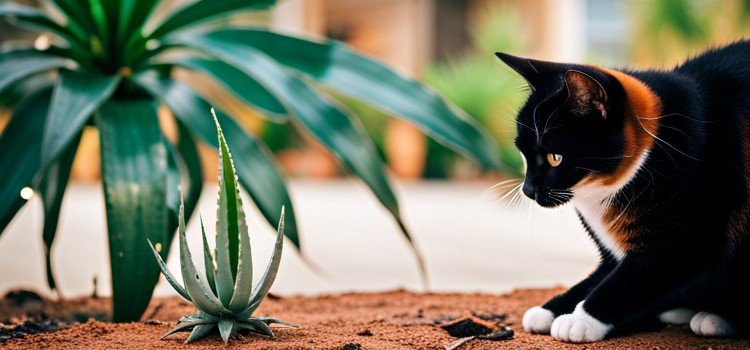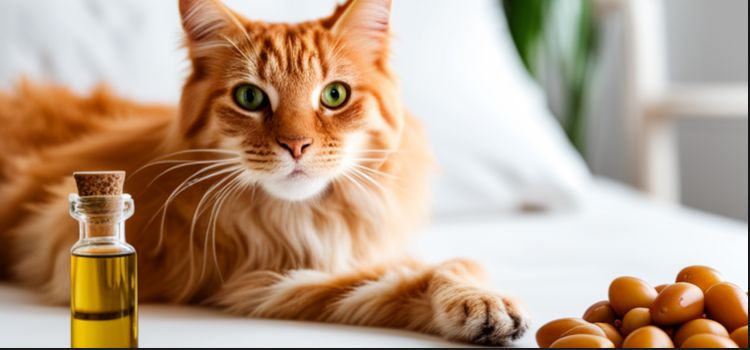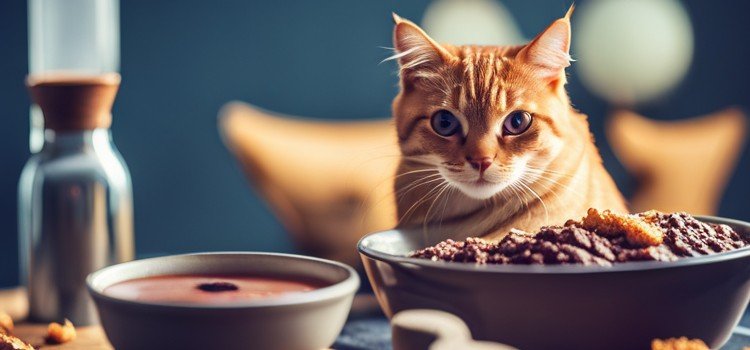As an Amazon Associate committed to the mission of improving the lives of our readers, Live-Clear.com receives a small commission from eligible purchases made through our affiliate links. This revenue enables us to keep producing insightful articles and other material.
Patchouli is not safe for cats and can cause toxic reactions. It should be kept away from cats to prevent harm.
Patchouli, a popular essential oil known for its earthy scent, is commonly used in aromatherapy and as a fragrance in various products. However, when it comes to cats, caution should be exercised as Patchouli is not safe for feline friends.
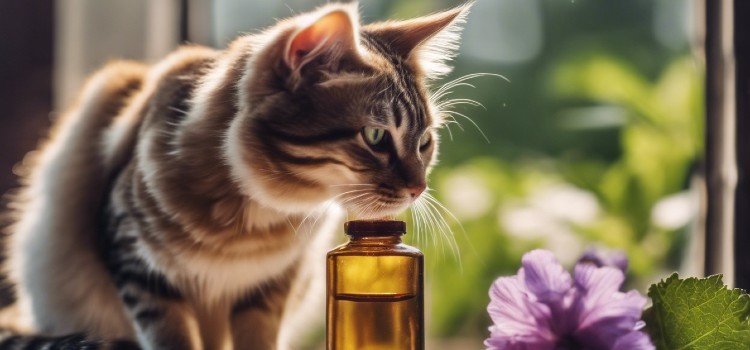
Cats have a heightened sensitivity to certain essential oils, including Patchouli, which can lead to toxic reactions when ingested or inhaled. It is important to keep Patchouli and other essential oils out of reach of cats to protect their health and well-being. We will explore the potential risks and symptoms of Patchouli toxicity in cats, as well as provide tips on how to keep your furry companions safe.
Understanding If Patchouli Safe For Cats
Patchouli is a popular essential oil, but is it safe for cats? It’s important to understand that patchouli can be toxic to cats, causing digestive issues and irritation. It’s best to avoid using patchouli around your feline friends to ensure their safety and well-being.
Patchouli, the aromatic essential oil known for its distinctive musky and earthy scent, has gained significant popularity in recent years. However, if you are a cat owner, it is important to understand whether this fragrant oil is safe for your feline companion. In this article, we delve into the origins, uses, and chemical composition of patchouli. Let’s explore what makes this oil so unique and whether it poses any risks to our beloved cats.
Origins And Uses Of Patchouli
Patchouli oil is derived from the leaves of the patchouli plant, scientifically known as Pogostemon cablin. This tropical evergreen is native to Southeast Asia, specifically Indonesia, India, and the Philippines. For ages, patchouli has been highly valued for its many uses. In the world of aromatherapy, people appreciate patchouli essential oil for its ability to bring a sense of calmness and grounding. It’s commonly applied to ease feelings of stress, anxiety, and depression. Many individuals find comfort in its lasting scent, believed to help with relaxation and uplift one’s mood.
Patchouli is also utilized in the cosmetic industry, commonly found in products such as perfumes, soaps, and lotions. Its distinct scent acts as a natural deodorizer, making it a popular choice for personal care items. Additionally, patchouli oil is known for its antimicrobial properties, which can benefit the skin by combating bacteria and fungi.
Chemical Composition And Properties
The special smell of patchouli comes from its complicated mix of chemicals. Key parts of patchouli oil are patchoulol, α-bulnesene, and β-caryophyllene, creating the distinct earthy, woody, and musky fragrance. Patchouli oil is not just about the scent; it also works as an insect repellent and insecticide. This is why it’s often found in natural bug control items. But, be cautious, as high concentrations of patchouli can harm insects, and the same could be true for animals.
When it comes to cats, we need to be extra careful. Cats react strongly to certain essential oils because their livers can’t process these substances well. If cats ingest or breathe in a lot of patchouli oil, it could cause problems like stomach issues, skin irritations, or even liver damage. Our furry friends’ well-being should be a top priority. If you’re thinking of using patchouli oil around cats, it’s wise to talk to your vet for expert advice on how to use it safely and the right amount.
In summary, although patchouli has a fascinating history and many uses, it’s crucial to be cautious when introducing it to our feline friends. Cats have unique bodies that need special attention regarding the things they come in contact with. It’s always better to be safe than sorry when it comes to our beloved cats’ health and safety.
Is Patchouli Safe For Cats?
Patchouli is a popular essential oil known for its distinct aroma and potential benefits. However, if you are a cat owner, you might be wondering: is patchouli safe for cats? In this article, we will explore the potential risks and benefits of patchouli and assess its safety for our feline friends.
Assessing The Potential Risks And Benefits
Before using any essential oils around your pets, it’s important to understand the potential risks and benefits they may pose. Patchouli oil, derived from the leaves of the patchouli plant, is no exception. Here, we’ll take a closer look at what you need to know.
- Possible benefits: Patchouli oil is believed to have various benefits for humans, such as its calming and grounding properties. However, it’s important to note that the research on the effects of patchouli oil specifically on cats is limited.
- Potential risks: Cats have a more delicate and sensitive respiratory system compared to humans. While certain essential oils may be safe for us, they can be toxic or irritating to cats. Patchouli oil contains compounds such as patchouli alcohol and terpenes, which can cause adverse reactions if ingested or inhaled by cats.
- Symptoms to watch out for: If your cat is exposed to patchouli oil, keep an eye out for symptoms such as respiratory distress (coughing, wheezing, difficulty breathing), skin irritation, drooling, and vomiting. If you notice any of these signs, seek immediate veterinary attention.
To minimize risks, it’s generally advisable to exercise caution and refrain from using patchouli oil directly on or around your cat.
Comparative Safety Of Patchouli With Other Plants
To better understand the safety of patchouli oil for cats, it’s helpful to compare it with other plants that are known to be potentially harmful to felines.
| Plant | Potential Harmful Effects |
|---|---|
| Lilies | Ingestion can cause kidney failure in cats. |
| Yew | All parts of the plant are toxic, especially the leaves and seeds. |
| Aloe vera | The gel may cause vomiting, diarrhea, and lethargy. |
| Poinsettia | Ingestion can lead to mild gastrointestinal irritation. |
When comparing patchouli oil with these plants, it becomes evident that patchouli is not necessarily one of the most toxic options. However, this does not mean it is safe for cats. It’s always best to consult with a veterinarian before introducing any new plants or essential oils into your cat’s environment.
Recognizing Toxicity In Cats
As much as we love our feline companions, it’s important to be aware of potential hazards that could jeopardize their health and well-being. One such concern is the use of patchouli, a popular essential oil known for its earthy aroma. While patchouli may have numerous benefits for humans, it is essential to recognize that cats have a different physiology, and what may be harmless to us could be toxic to them. In this post, we will explore signs and symptoms of patchouli poisoning in cats, along with situations that require extra caution.
Common Signs And Symptoms Of Poisoning
If you suspect your cat may have been exposed to patchouli or is showing unusual behavior after contact with it, look out for these common signs and symptoms:
- Excessive drooling
- Vomiting or diarrhea
- Difficulty breathing or coughing
- Depression or lethargy
- Uncoordinated movements or tremors
- Excessive thirst or increased urination
- Changes in appetite
- Skin irritation or redness
When To Be Particularly Cautious
While patchouli is generally considered safe for cats when used in small amounts, certain circumstances warrant extra caution. Here are situations when you should be particularly proactive in keeping your furry friend away from patchouli:
- If your cat has a known history of allergies or sensitivities to essential oils.
- If your cat has respiratory issues such as asthma, as the strong scent of patchouli can potentially trigger breathing difficulties.
- If your cat tends to groom themselves excessively, as they may ingest patchouli if it is present on their fur.
- If your cat is pregnant or nursing, as essential oils can have a stronger impact on their sensitive systems.
- If you are diffusing patchouli oil in your home, ensure that the area is well-ventilated and your cat has access to fresh air.
With their keen sense of smell, patchouli oil can still affect cats even in a separate area. Paying attention to your cat’s behavior and implementing preventative measures are crucial for their safety and well-being.
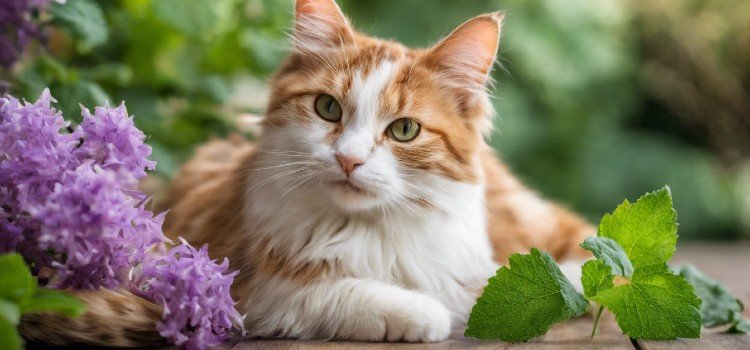
Safe Use Of Patchouli Around Cats
Patchouli can have adverse effects on cats if ingested or applied in concentrated forms. It is important to use patchouli products with caution and keep them out of reach of cats to ensure their safety and well-being.
Safe Use of Patchouli Around Cats Patchouli is a popular essential oil that is known for its earthy and musky scent. While many people enjoy the aroma and therapeutic benefits of patchouli, it’s important to consider the safety of using this oil around cats. Cats are sensitive creatures, and certain essential oils can be toxic to them. In this article, we will discuss the best practices for using patchouli in a cat-friendly manner and provide alternatives for cat owners who want to enjoy a pleasant scent without putting their furry friends at risk.
Best Practices For Using Patchouli
When it comes to using patchouli around cats, it’s crucial to take certain precautions to ensure their safety. Here are some best practices to follow:
- Dilute properly: Essential oils are highly concentrated, and direct application of undiluted patchouli oil can irritate a cat’s sensitive skin. Always dilute patchouli oil with a carrier oil, such as coconut or jojoba oil, before applying it to your skin or using it in a diffuser. A general rule of thumb is to use a 1% dilution for cats, which means adding 1 drop of patchouli oil to every teaspoon of carrier oil.
- Avoid direct contact: Cats have a tendency to groom themselves, and if they come into direct contact with patchouli oil, they may ingest it while licking their fur. To prevent this, avoid applying patchouli oil directly to your cat or any surfaces that your cat frequently comes into contact with.
- Use high-quality products: When purchasing patchouli oil, opt for high-quality, pure and organic oils. This ensures that the oil does not contain any synthetic additives or impurities that may harm your cat.
- Monitor your cat’s behavior: Cats can have different sensitivities to various scents. After using patchouli oil in your home, observe your cat’s behavior and look out for any signs of discomfort or distress, such as excessive scratching or sneezing. If you notice any adverse reactions, discontinue use of patchouli oil immediately.
Alternatives To Patchouli For Cat Owners
If you are a cat owner who wants to create a pleasant atmosphere in your home without using patchouli, there are several safe alternatives that you can consider:
- Lavender: Lavender is a calming scent that is loved by many and is generally safe for cats when used in moderation. Just like with patchouli, make sure to dilute lavender oil properly and avoid direct contact with your cat.
- Catnip: Catnip, known for its stimulating effect on cats, is an excellent alternative to patchouli. You can use dried catnip or catnip-infused toys to provide your cat with a pleasant and enjoyable experience.
- Citrus oils: Cats tend to dislike the strong scent of citrus oils, making them a great natural deterrent to keep your feline friends away from certain areas of your home. However, it’s important to note that direct contact with citrus oils can irritate a cat’s skin, so use them sparingly and only in well-ventilated areas.
- Fresh air and natural scents: Sometimes, the best way to create a cat-friendly environment is to simply open the windows and let in some fresh air. Alternatively, you can use natural scents such as freshly cut flowers or dried herbs to add a pleasant aroma to your home without worrying about the safety of your cat.
In conclusion, while patchouli oil can be enjoyed by humans, it’s important to use it safely around cats. By following the best practices mentioned above and considering cat-friendly alternatives, you can create a pleasant atmosphere in your home without putting your furry friend’s health at risk.
The Vet’s Perspective On Patchouli Safe For Cats
As a vet, I understand the concerns about patchouli’s safety for cats. Avoid using patchouli oil around cats, as it can cause adverse reactions and toxicity, despite its potential benefits. It’s important to prioritize your cat’s health and consult with a professional before using any essential oils.
Essential Oils And Patchouli Safe For Cats
As responsible cat owners, we always strive to ensure the safety and well-being of our furry friends. And when it comes to essential oils, we want to make sure that they are safe for our feline companions. In this blog post, we will delve into the topic of patchouli and its potential effects on cats. Before we go any further, it is essential to get a professional perspective on this matter.
Precautionary Measures Recommended By Veterinarians
When it comes to essential oils, including patchouli, it is crucial to approach the subject with caution. Not all essential oils that benefit humans are necessarily beneficial for our feline friends. Veterinarians strongly recommend taking certain precautionary measures when using essential oils around cats. It is important to note that cats have a unique metabolism that differs significantly from humans and even other animals. Their liver function, in particular, plays a crucial role in metabolizing various substances. So when considering the use of essential oils, it is critical to consult a veterinarian who specializes in feline health to ensure the safety of your beloved pet.
Implementing Precautionary Measures For Patchouli Safe For Cats
- Keep the oils out of your cat’s reach: Cats are naturally curious creatures, and their inquisitive nature may lead them to explore anything new or intriguing in their surroundings. Therefore, it is crucial to store essential oils and other potentially harmful substances securely out of your cat’s reach.
- Dilute essential oils properly: If you do decide to use essential oils around your cat, ensure that they are diluted properly. Strong concentrations of essential oils can pose a higher risk to a cat’s health. Always follow the recommended dilution ratios provided by reputable sources or your veterinarian.
- Monitor your cat for any adverse reactions: Even when using essential oils in diluted form, it is vital to observe your cat for any signs of discomfort or adverse reactions. Take symptoms such as drooling, vomiting, diarrhea, difficulty breathing, or excessive lethargy seriously. If you notice any of these signs, contact your veterinarian immediately.
- Allow your cat an escape route: Cats value their personal space and enjoy having the freedom to remove themselves from any situation they deem uncomfortable. When using essential oils, ensure that your cat always has a way to leave the area if they choose to.
Keep in mind that while essential oils may offer benefits for humans, the same cannot always be said for cats. Prioritizing your cat’s health and safety should always be the top concern.
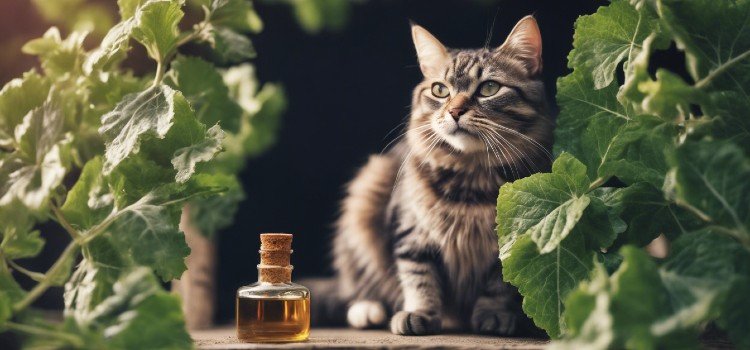
Natural Cat Repellents And Patchouli For Cats
Patchouli, a common ingredient in natural cat repellents, raises concerns about its safety for cats. However, it is essential to note that patchouli can be toxic to cats when ingested or applied directly to their skin. Therefore, it is advisable to avoid using patchouli and explore alternative cat repellents.
When it comes to the topic of natural cat repellents, there are a few options that come to mind. One such option is patchouli, a fragrant herb often used in essential oils and aromatherapy. But is patchouli safe for cats? In this article, we will explore the use of patchouli as a natural cat repellent and its effectiveness in keeping our feline friends at bay.
How Patchouli Fits Into The Context Of Natural Repellents
For those seeking natural alternatives to deter cats from certain areas, patchouli can be a compelling option. It has a strong and distinct aroma that cats tend to find unpleasant. This makes it a popular ingredient in homemade cat repellent sprays and candles.
Using patchouli as a natural cat repellent not only avoids the potential risks associated with synthetic repellents but also aligns with eco-friendly practices. By opting for natural solutions, we can minimize the use of harmful chemicals that could harm our environment and our beloved pets.
The Effectiveness Of Patchouli As A Deterrent
When it comes to repelling cats, the effectiveness of patchouli can vary from cat to cat. While the scent of patchouli may deter some cats, others may not be as bothered. However, studies have shown that patchouli can act as a deterrent for many cats, making it a viable option for those in search of a natural solution.
The concentration of the essential oil used is one of the key factors affecting the effectiveness of patchouli as a cat repellent. A higher concentration of patchouli oil tends to yield better results in terms of deterring cats. It’s worth noting that the scent of patchouli can fade over time, so you may need to reapply it periodically to maintain its effectiveness.
When using patchouli as a cat repellent, it’s important to consider the preferences and sensitivities of individual cats. The scent may overwhelm some but not bother others at all. If possible, it’s a good idea to test a small amount of patchouli in an inconspicuous area to see if your cat reacts negatively to the scent.
Patchouli can serve as a natural cat repellent, but its effectiveness varies with the cat and oil concentration. Consult a veterinarian before introducing new scents to ensure your pets’ safety.
Common Household Toxins For Cats
Patchouli, a common household toxin for cats, can be harmful to their health. It’s important to keep this plant away from your feline friend to ensure their safety.
Identifying Other Risks In The Home
Knowing patchouli’s safety for cats is vital, but it’s equally crucial to recognize other household toxins threatening our feline friends. Cats are curious creatures by nature, and their exploration can sometimes lead them into dangerous situations. Here are some potential hazards that every cat owner should be mindful of:
- Household cleaning products: Many conventional cleaning products contain chemicals that can be toxic to cats if ingested or inhaled. These include bleach, ammonia, and some types of floor cleaners.
- Human medications: Medications, such as painkillers, antidepressants, and even common over-the-counter drugs like acetaminophen, can be highly toxic to cats if consumed. It’s essential to keep all medications securely stored away from curious paws.
- Plants: Certain plants commonly found in households can be toxic to cats if ingested. Examples include lilies, azaleas, and poinsettias. Cat owners should be cautious about the types of plants they bring into their homes, ensuring they are non-toxic to cats.
Prevention And Safety Tips For Cat Owners
Caring for a cat means taking proactive measures to keep them safe from potential household hazards. Here are some prevention and safety tips that every cat owner should consider:
- Store cleaning products safely: Keep all cleaning products, including laundry detergents and dishwashing liquids, in secure cabinets or high shelves, out of the reach of curious cats. Consider using pet-safe cleaning alternatives whenever possible.
- Properly dispose of medications: Dispose of expired or unused medications properly, following local guidelines on medication disposal. Do not flush medications down the toilet or throw them in the trash where cats can access them.
- Research plants: Before adding new plants to your home, research and ensure they are safe for cats. Consider opting for cat-friendly plants, such as spider plants or catnip, which can provide enrichment without posing a risk to your furry companion.
- Secure garbage bins: Use secure, lidded garbage bins to prevent cats from rummaging through them and potentially ingesting harmful substances. This is particularly important if you dispose of household cleaners, medications, or other toxic substances in your regular trash.
- Regular veterinary check-ups: Schedule regular check-ups with your cat’s veterinarian to monitor their overall health and catch any potential issues early. Your vet can also provide guidance on keeping your cat safe from household toxins and answer any specific questions you may have.
By being aware of common household toxins and taking preventive measures, you can create a safe environment for your beloved feline companion. Remember, prioritizing your cat’s well-being includes ensuring their surroundings are free from potential hazards.
Action Plan If A Cat Ingests Patchouli
Accidents happen and sometimes cats may accidentally ingest patchouli, whether it’s from licking it off their paws or consuming a product containing this popular fragrance. As a responsible pet owner, it’s crucial to know what steps to take if your furry friend ingests patchouli. By following this step-by-step guide, you can help ensure your cat’s safety and prompt care in case such an incident occurs.
What To Do In Case Of Ingestion
- Stay Calm: In case your cat ingests patchouli, it’s essential to remain calm and composed. Panicking can hinder your ability to think clearly and take appropriate action.
- Assess the Situation: Check the quantity of patchouli your cat ingested and observe any immediate symptoms. This information will be helpful when contacting emergency veterinary services.
- Remove Any Remaining Patchouli: If there is still accessible patchouli within your cat’s reach, remove it to prevent further ingestion. Ensure the immediate environment is clear of any potential hazards.
- Monitor Your Cat: Keep a watchful eye on your cat for any signs of distress or unusual behavior. Common symptoms of patchouli ingestion can include vomiting, diarrhea, drooling, and lethargy.
- Contact Your Veterinarian: Reach out to your veterinarian immediately and provide them with all relevant information about the ingested patchouli and your cat’s symptoms. They will guide you on the next steps to take.
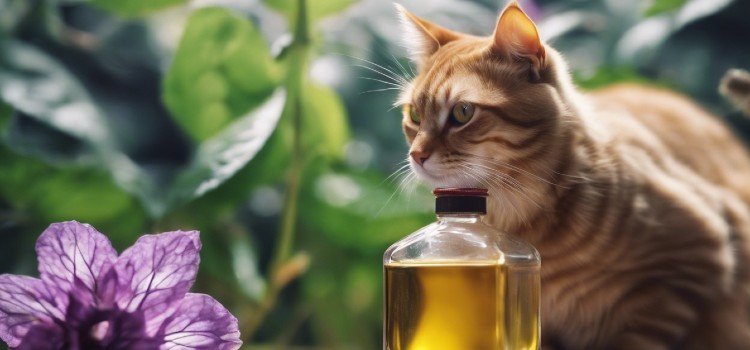
Conclusion
After carefully considering and researching, we have determined that patchouli is not safe for cats. The essential oil contains compounds that can be toxic to feline friends, causing various health issues. Therefore, it is essential for cat owners to keep their pets away from patchouli products to ensure their well-being.
Frequently Asked Questions For Is Patchouli Safe For Cats
Patchouli incense is not safe for cats. It can cause irritation, respiratory problems, and even toxicity in felines. Avoid using it near them to ensure their safety and well-being.
Yes, the patchouli plant is toxic to cats. It can cause vomiting, diarrhea, and even liver damage. Keep your furry friends away from this plant to ensure their safety.
Patchouli is not safe for pets as it can cause skin irritation, allergies, and even digestive problems if ingested. Keep your furry friends away from patchouli to ensure their safety and well-being.
Avoid using scents such as essential oils, citrus, lavender, and mothballs around cats.
Yes, patchouli oil can be harmful to cats as they are generally sensitive to essential oils.
Be cautious and always prioritize your pet’s safety when choosing scents for your home.
Amazon and the Amazon logo are trademarks of Amazon.com, Inc, or its affiliates.
